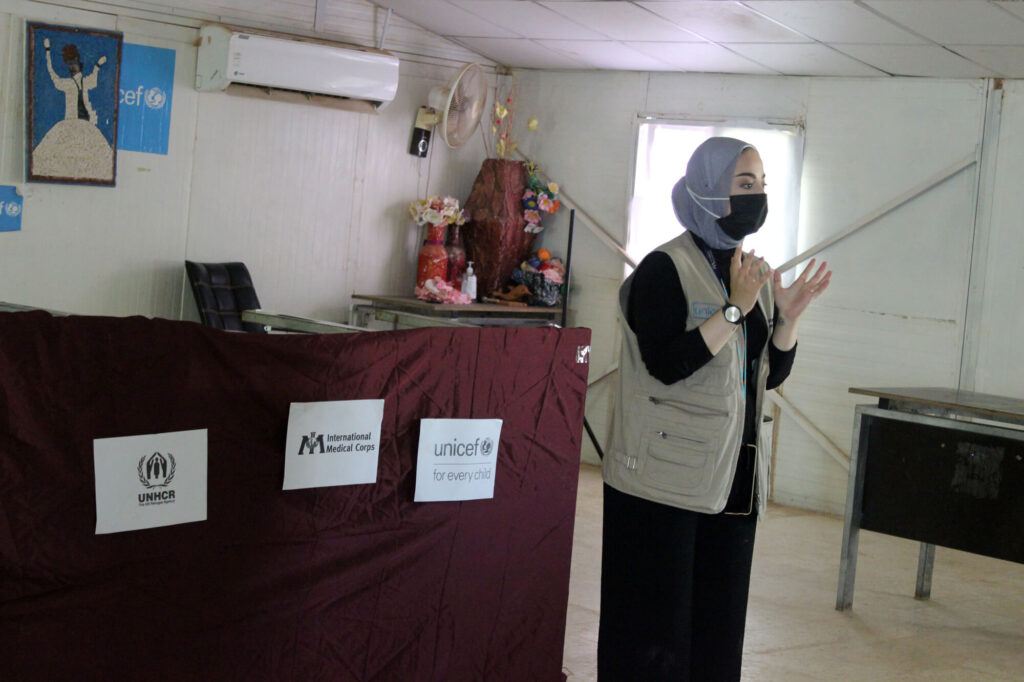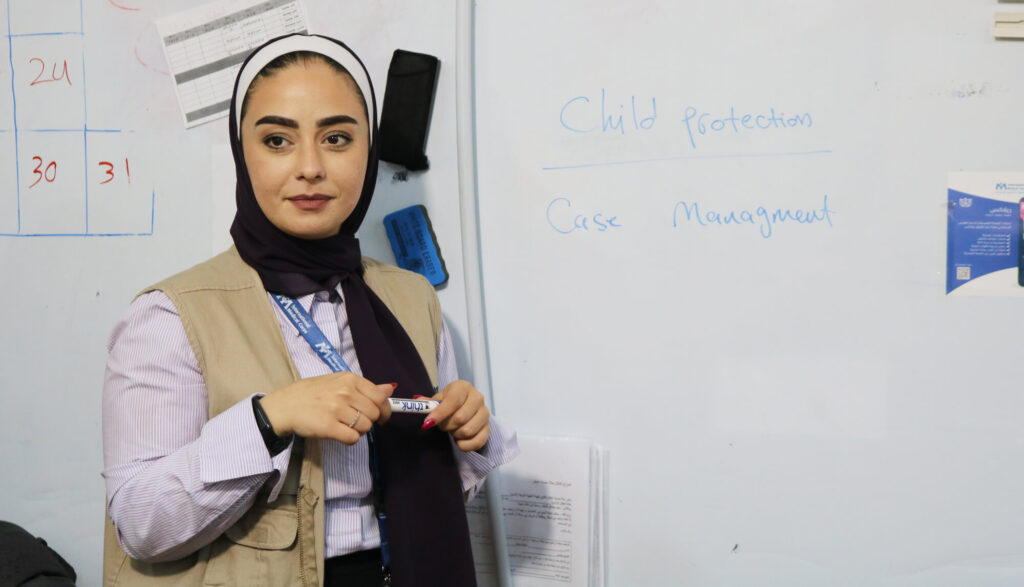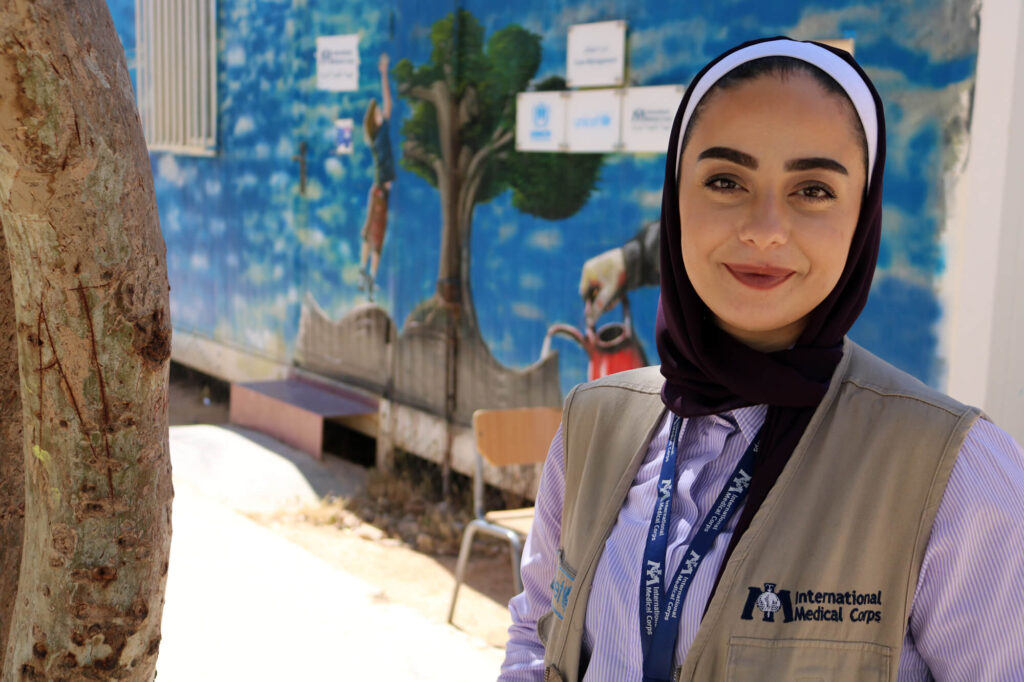While working as a child protection case manager in Jordan’s Al Zaa’tari refugee camp, Heba Lutfi—who’s currently our Child Protection Team Leader and the co-chair of the camp’s Child Protection, Sexual and Gender-Based Violence Sub-Working Group—received a heartbreaking case. A 16-year-old girl was suffering from severe abuse: her life was being threatened by her husband, who had already killed their one-year-old baby. She had been locked in her husband’s house with no connection to anyone for a year before her daughter’s murder.
In coordination with the Family and Juvenile Department in Jordan, Heba and her team implemented an immediate safety plan to get the out of harm’s way. They helped her access legal support, and connected her with a child protection counselor who provided her with individual sessions to talk about her traumatizing situation. Today, the is divorced from her husband, who is in jail, and she’s living with family members who are providing her with the support she needs.
“Many girls are now being abused, and they can’t talk or reach out to our centers,” Heba says. “We hope we can change their lives for the better, as well.”

Because children and adolescents, especially girls, are some of the most vulnerable members of our society, they are sometimes exploited and thrust into dangerous and age-inappropriate circumstances. Our Jordan child protection team—which includes 13 case managers and four child-protection counselors—works with children facing a multitude of harrowing situations, including child marriage, child labor, neglect, violence or the inability to go to school. The team provides case management services, working with the children and their families on structured and time-lined care plans. They also refer children to other agencies for additional psychosocial support, child protection counseling or other services. After the child’s situation becomes more stable, the team continues to conduct follow-ups to ensure his or her ongoing stability.
But changing the lives of children in abusive or dangerous situations is not easy. Based on her observations, Heba believes that abuse, domestic violence and child marriage have only increased since the start of the COVID-19 pandemic.
“In the early phase of the pandemic and during the lockdown, we couldn’t reach the children who were in need of protection services, so we coordinated with governmental parties to reach and communicate with these cases, ensuring their safety,” Heba explains. “Later on we resumed our field work, with some limitations on the group sessions.”

The team also is up against cultural customs that normalize child marriage, which create challenges for Heba and the team.
But Heba is working hard to be part of the solution—not only within the context of International Medical Corps’ work but across sectors and across organizations. As co-chair of Al Zaa’tari camp’s Child Protection, Sexual and Gender-Based Violence Sub-Working Group, she coordinates with the Mental Health and Psychosocial Support (MHPSS) Working Group and the Aging and Disability Taskforce to improve the capacity of frontline workers and identify children in need of protection, gender-based violence and MHPSS services.
She and her team also started a youth community committee inside the Al Zaa’tari camp, training members on child protection concerns so that they can conduct awareness sessions in their community.
To celebrate International Day of Women and Girls in Science in February, the child protection team created an event that was attended by girls in the camp who are studying science at college, including some from the community committee. They talked about the challenges they’ve faced and how they have been able to overcome these obstacles. In addition, Dr. Rana Dajani, a Jordanian biologist, spoke with the girls about her work and gave support.
“I love being able to help girls who could be at risk of domestic violence or abuse become more engaged in school,” Heba says. “Watching them follow their dreams and become active members in their community gives me the power to go on, help a lot of other girls and be sure that those girls can change the world with their abilities.”
She adds, “I want to have the chance to tell every girl that she has the right to access education and say no to violence. I encourage every child who is facing abuse to seek help.”
